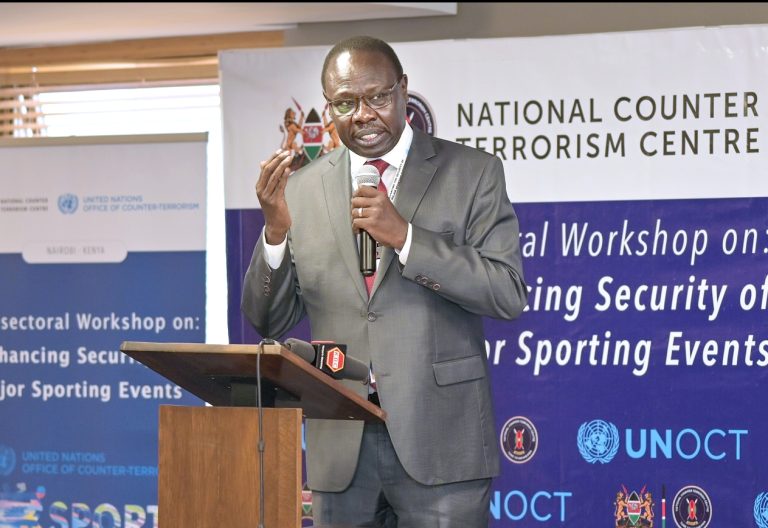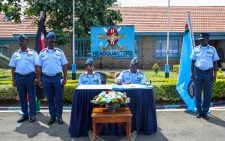State adopts ‘soft power’ to fight terrorist networks and extremism

Kenya is using military action to dismantle terror organisations and deter future attacks, and at the same time, building relationships with local communities as a means to weaken the terrorist ideology.
Apart from the hard power approaches, a programme is in place to enable violent extremists and radicalised people to disengage from violent extremism and reintegrate into mainstream society.
Director of the National Counter Terrorism Centre (NCTC) Kibiego Kigen has said that there is a need to complement some of the robust military measures -commonly referred to as hard approaches –with other soft approaches, including disengagement, deradicalisation, rehabilitation and reintegration (DDRR).
The use of hard power involves, for example, neutralising essential terrorist leaders and destroying terrorist organisations through the use of targeted missile strikes and military action to dismantle terror organisations and deter future attacks.
Preventive approaches
Kigen said other softer approaches, said to be preventive and proactive, involve the use of religious leaders to offer counter-narratives that debunk misinformation about extremism, and also prioritise rehabilitation over retribution.
NCTC has also warned that violent extremists are exploiting the vulnerability of the Kenyan youth to radicalise and recruit them.
Economic hardship, marginalisation, and lack of education opportunities, among other factors, have made the youth vulnerable and the government has already adopted a multi-pronged approach to build and enhance their resilience.
“Over the years, extremist groups have adapted tactics, preying on the vulnerabilities of the youth. This reality underscores the urgency for more coordinated and inclusive approaches in the preventing and countering violent extremism sector to countering these threats,” he said.
Enhance skills
He was speaking during the Global Counter Terrorism Forum’s East Africa Working Group on Motivational Engagement for security officers in Nairobi.
The training is part of the 2024-2026 Work Plan that is aimed at enhancing the skills of security practitioners in the reception, screening, and assessment of individuals disengaging from violent extremist groups.
Kigen said the participants were equipped with pertinent skills to aid them in their work as disengagement officers.
“This knowledge and skills will go a long way in our global fight against the scourge of terrorism,” he said.
The training was also attended by the Minister Plenipotentiary Mohammed Al Roumi, Deputy Assistant Foreign Minister for Development and International Cooperation Affairs, Kuwait.
NCTC said the initiative was born out of the thematic workshop on Disengagement, Deradicalisation, Rehabilitation and Reintegration of persons associated with terrorist groups, that took place in Kuwait City in October last year.
“The participants were taken through the Kenyan model of Motivational disengagement where they were equipped with skills in self-awareness, and appreciative communication among others, all aimed at assisting the target person to disengage from violent extremism,” Kigen said.
He added that it was imperative for the trainees to take back this knowledge and skills and tailor-make their own DDRR programs to suit the needs of their countries in the area of disengagement.














